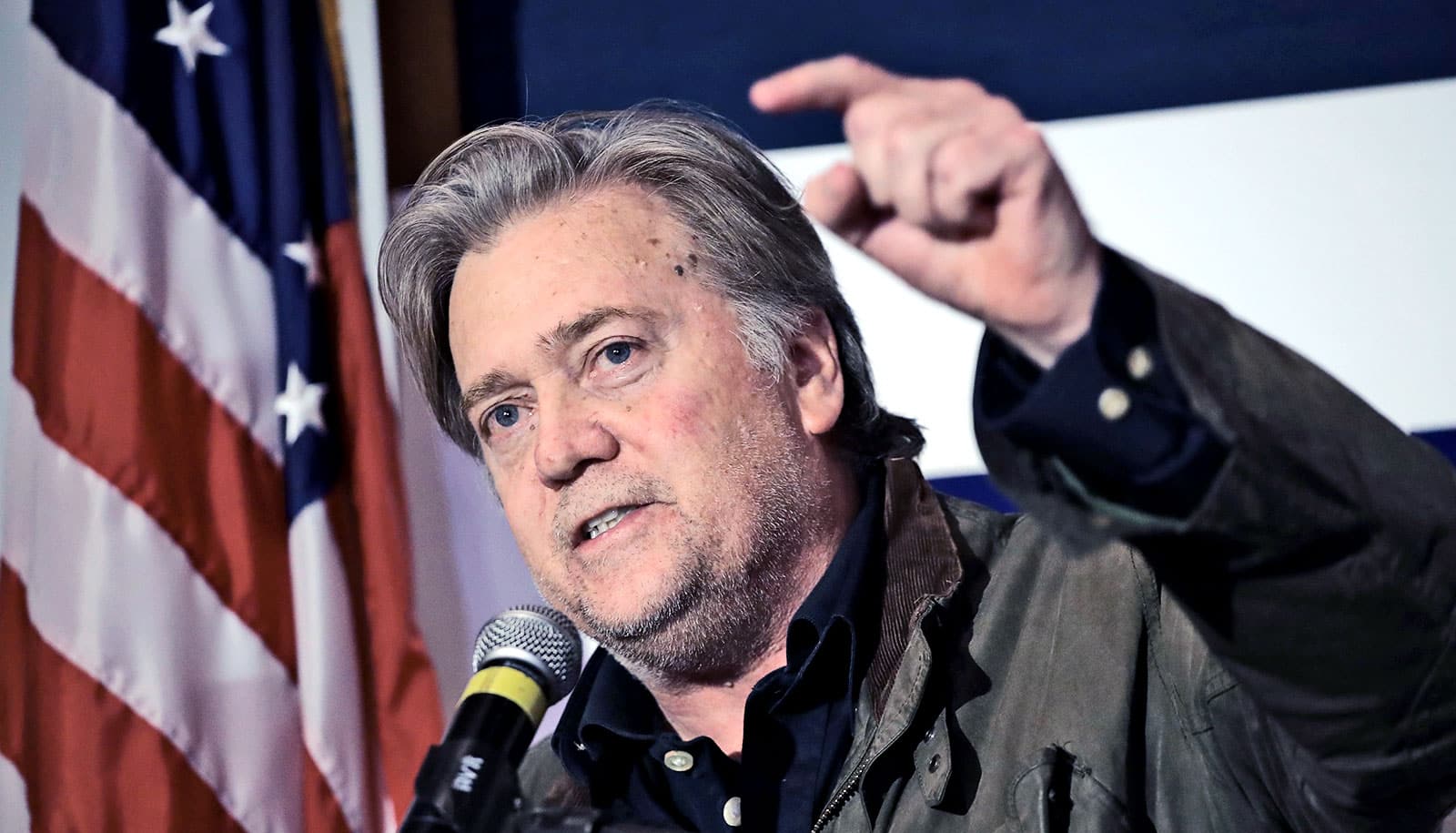Investigations by Congress and special counsel Robert Mueller looking into whether the Russian government interfered with the 2016 US presidential election took a dramatic turn last week when Steve Bannon, former chief strategist to President Trump, refused to comply with a subpoena from the US House Intelligence Committee to answer questions about his time in the White House.
Here, David Sklansky, professor of law and faculty co-director of the Stanford Criminal Justice Center, discusses subpoenas and the law governing these investigations. Sklansky is also the author of Democracy and the Police (Stanford University Press, 2008), and he writes regularly about criminal procedure and law enforcement.
Earlier this week Bannon made headlines when he refused to answer questions put to him by members of the US House Intelligence Committee.
That refusal resulted in the quick issuance of a subpoena during the meeting, yet he still refused to answer key questions, evidently citing executive privilege. What do you make of his reason for not complying with that subpoena?
Apparently Bannon refused, on instructions from the White House, to answer any questions about anything that happened during the transition or after Trump took office. That’s further than any remotely plausible interpretation of executive privilege would reach. And it’s a position that would mean that there could never be any meaningful congressional oversight of the executive branch, or of presidential transitions.
It’s not clear that executive privilege applies to presidential transitions at all. And even after a president takes office, executive privilege is limited. It gives way, for example, when there is a strong need for the evidence in question. And as far as we know the White House hasn’t asserted executive privilege in connection with any of what Bannon would testify about. So this really is just stonewalling. I don’t think Congress should go along with it. And it doesn’t look as though they will.
Special Counsel Mueller subpoenaed Bannon to appear before a grand jury this week. Why was he subpoenaed?
We can’t know for sure, because Mueller and his team have been admirably close-lipped about their investigation. But Mueller is charged with investigating ties between the Trump campaign and Russia, as well as any related efforts to obstruct justice. Bannon helped run Trump’s campaign and then was a top official in the White House. So it’s completely understandable that Mueller would have questions for him.
It was also reported that Bannon will now cooperate with special counsel Mueller. Does that mean that he won’t have to go before the grand jury?
Yes, probably. It’s common in a federal criminal investigation for prosecutors to agree to conduct an office interview with a witness in lieu of questioning the witness before a grand jury. Depending on the terms of Bannon’s agreement with the prosecutors, though, it’s still possible that he may wind up testifying before a grand jury down the road.
Why would Bannon comply with Mueller’s subpoena and not the one issued by the House?
We don’t know what questions, if any, Bannon will refuse to answer when he meets with the Special Counsel’s office, or what discussions, if any, Bannon’s lawyers have had with Mueller’s team about what they plan to ask him. But Bannon may, in fact, have more incentive to cooperate with Mueller than with Congress: Mueller carries a bigger club.
Can Congress force Bannon—or any witness—to speak?
Congress can issue subpoenas, as it already has. If Bannon refuses to comply with the subpoenas, he can be prosecuted in court for contempt, but this would require action by the Department of Justice, and that is unlikely to happen quickly, if at all. Congress also has the power to hold a witness in contempt on its own, without involving the courts, but this power hasn’t been used in over eighty years.
What happens if Bannon ends up not cooperating with Mueller and his team? Are there additional legal tools to force him to speak?
They can do what they’ve already done: issue a subpoena that requires Bannon to appear before a grand jury unless he works out an arrangement to talk to prosecutors outside the grand jury room. If that agreement falls through, and if Bannon refuses to comply with the grand jury subpoena, he could be prosecuted for contempt. Or he could be jailed until he agrees to testify.
Source: Sharon Driscoll for Stanford University



